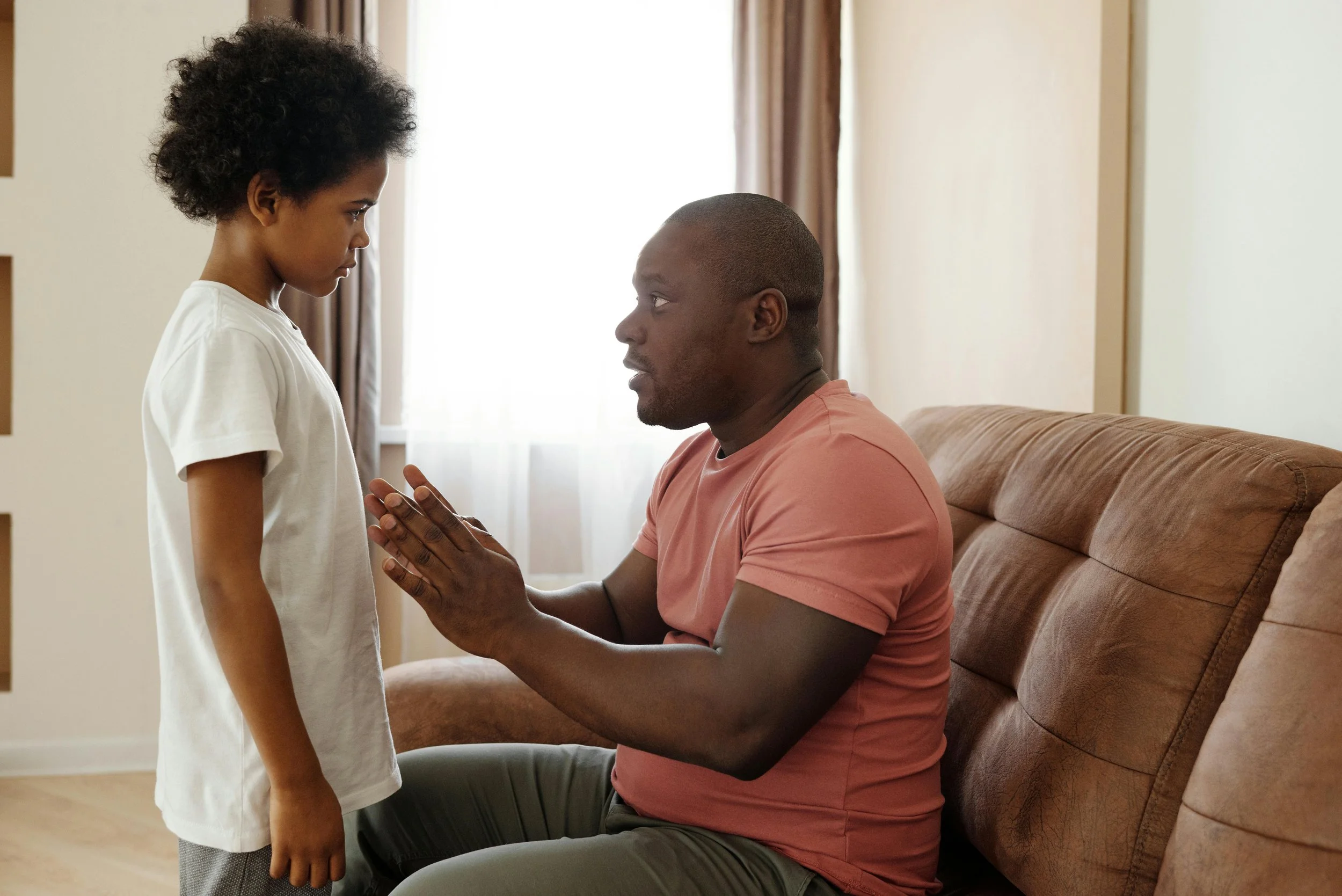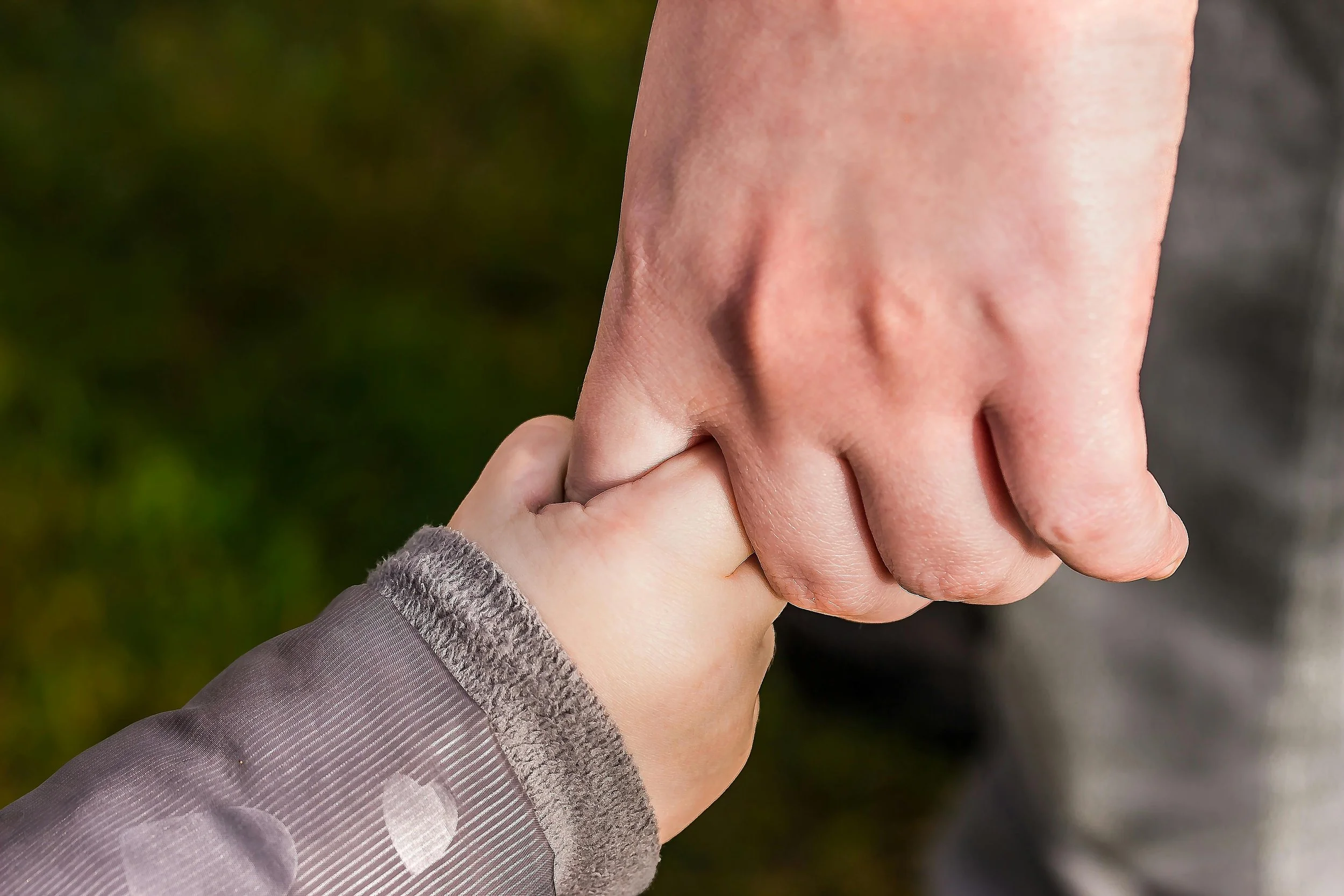When Your Child Hates School and You're Out of Ideas
Your child is still having daily meltdowns about school.
The morning routine feels like you're preparing for battle. They're dragging through the door at pickup, completely wiped out. Everyone keeps telling you to "give it time," but that nagging feeling in your gut says this isn't just typical adjustment stuff.
Trust that feeling. You're not being dramatic, and you're not imagining things.
Some kids need more than time to feel safe and successful at school. And after 30 years of walking alongside families through exactly this struggle, I can tell you: there are specific reasons your child is having such a hard time, and there are specific things that actually help.
First, Let's Talk About What This Really Is
When kids consistently refuse or struggle with school, it's not because they're being difficult. It's not because you've somehow failed as a parent. And it's definitely not something they'll just "grow out of" if you wait long enough.
School refusal affects about 2-5% of kids, and it can happen at any age. What it actually is? Your child's nervous system telling you something feels genuinely unsafe or unmanageable to them.
Here's what school refusal is NOT:
Your kid being manipulative or lazy
A phase they'll outgrow without help
Evidence that you're too soft or not strict enough
Here's what it IS:
A signal that your child's stress bucket is overflowing
Usually connected to anxiety, learning differences, or sensory overwhelm
Your child's way of saying "I need different support to feel capable here"
Why Starting School Feels So Hard (Even When It "Shouldn't")
Think about it from your child's perspective. School asks them to:
Handle separation from you (their safe person) for hours at a time, navigate social dynamics they can't control or predict, follow rules and routines that might not make sense to their brain, and perform academically while managing all of the above.
For anxious kids, especially sensitive or deeply feeling children, this combination lights up every alarm bell in their nervous system. Once that alarm is ringing, their behavior becomes all about getting back to safety. Which, for them, often means: home, you, control.
The Three Big Triggers I See Most Often:
Academic Overwhelm: Maybe they're struggling with undiagnosed learning differences, or they're perfectionists who melt down at the thought of making mistakes. Sometimes it's executive function stuff, they can't keep track of all the moving pieces and feel behind before they even start.
Social Anxiety: This isn't just shyness. This is genuine fear about peer interactions, worry about being rejected or judged, or feeling completely overwhelmed by the social complexity of group settings.
Sensory Overload: Loud cafeterias, crowded hallways, fluorescent lights, unexpected schedule changes, for some kids, school environments feel like sensory assault courses.
The Art of Building Real Confidence (Not Fake Cheerleading)
Here's where a lot of well-meaning advice goes wrong. We think we need to convince kids that everything will be amazing and wonderful. But anxious kids can smell fake positivity from a mile away, and it actually makes them trust us less.
Instead of Hype, Try Honesty:
Instead of: "You're going to LOVE school! It'll be so fun!"
Try: "You might like some parts and find other parts tricky. Either way, you can handle it."
Instead of: "There's nothing to be scared of!"
Try: "It makes sense that new things feel scary. You can be nervous and still do brave things."
Instead of: "Just think positive!"
Try: "This is hard AND you're capable of figuring it out."
Focus on Effort, Not Outcome:
Kids thrive when we notice the process, not just the result, it tells them their hard work matters as much as the win.
"I noticed how you kept trying even when it felt difficult"
"You asked for help when you needed it, that's really smart"
"Look how you handled that disappointment. That took real strength"
Validate the Struggle:
When we acknowledge that something is hard, we show kids that their feelings make sense, and that they’re not alone in them.
"This IS genuinely hard, it makes sense you're finding it challenging"
"Different brains find different things easy or difficult"
"You don't have to love it. You just have to show up"
Your Connection Is Their Confidence
When kids are struggling with school, your relationship becomes their most important safe harbor. This is where they recharge, where they process, where they remember who they are beyond their struggles.
Strengthen Your Connection:
Create special time together: Spend 10-15 minutes of focused, uninterrupted time daily. Let them choose what to do. No advice-giving, no problem-solving, just connection.
Share your own experiences: Tell them about times when you felt nervous or uncertain. Share how you handle difficult social situations now. Model that grown-ups have big feelings too and that's normal.
Stop trying to fix everything. Sometimes they just need you to witness their experience and say, "Yeah, that sounds really hard."
The Both/And Approach: Understanding AND Expectations
This might be the trickiest part of supporting a struggling child: knowing when to provide comfort and when to gently encourage forward movement.
Here’s the thing, you don’t have to choose between being understanding or having expectations. In fact, the most effective support blends both: acknowledging your child’s feelings and challenges while also holding space for their capability and potential. This “Both/And” approach communicates,
“I get it and I believe in you.”
What Both/And Sounds Like:
"I can see that making friends feels really scary to you right now, AND I believe we can practice some ways to make it feel a bit easier."
"It makes sense that school feels overwhelming, AND I know you have the strength to handle hard things."
The Both/And approach helps children feel truly understood while also reinforcing their sense of capability. By normalizing challenges, it reduces feelings of shame and creates space for growth. It encourages resilience without pushing them past their limits, building trust that you’ll both support and challenge them in healthy ways. Over time, it teaches them an important life lesson, that two seemingly opposite truths can exist at the same time.
When to Get Additional Support
Consider reaching out for professional help if:
School struggles persist beyond 6-8 weeks despite your support
Your child's distress is significantly impacting sleep, appetite, or behavior at home
You're feeling overwhelmed and unsure how to help
School staff are expressing ongoing concerns
Family stress is becoming unmanageable
Remember: asking for help isn't admitting defeat. It's recognizing that some kids need specialized support to thrive, and that's completely okay.
Building Skills Before Problems Start
Here's what I've learned after three decades of this work: prevention is so much easier than intervention.
While everything we've talked about is crucial for kids who are already struggling, there's incredible value in building these foundational skills before challenges emerge. When children learn to navigate social situations, manage big emotions, and feel confident in group settings before the formal school environment begins, they enter kindergarten with a toolkit already in place.
For families with preschoolers, this is your golden opportunity. You can help your child practice separation, build social skills, and develop emotional regulation in a supportive, low-pressure environment.
Ready to Get Ahead of School Struggles?
This is exactly why we created PEERS® for Preschoolers. It's not just about preventing problems, it's about giving you the tools to help your child build the strongest possible foundation for their entire educational journey.
This evidence-based parent coaching program teaches you how to help your preschooler develop crucial social skills at home. You'll learn specific strategies to coach your child through friendship challenges, practice social scenarios together, and build their confidence in navigating peer relationships.
Fall enrollment is now open. Because here's the truth: when children feel genuinely confident in their ability to handle whatever comes up, school transitions become adventures instead of sources of stress.
And wouldn't that be amazing?
SPACE (Supportive Parenting for Anxious Childhood Emotions) is an evidence-based program from Yale University designed to help parents support children struggling with anxiety. Instead of putting the focus on treating the child directly, SPACE equips parents with the tools to reduce accommodations that unintentionally reinforce anxiety, while increasing support that builds confidence and resilience.
Through SPACE, parents learn how to respond with empathy and calm authority, create step-by-step plans for reducing anxiety-driven behaviors, and foster independence in their children. Research shows that when parents make these changes, children’s anxiety decreases significantly, leading to healthier family relationships and greater long-term coping skills.






